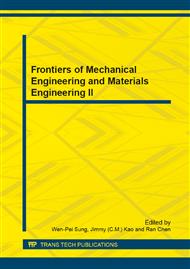p.1653
p.1657
p.1661
p.1665
p.1669
p.1673
p.1678
p.1682
p.1686
Genetic Algorithm for Single Machine Scheduling Problem with Setup Times
Abstract:
This paper describes a genetic algorithm to solve the single machine scheduling problem with setup times, which uses the fixed two point crossover operator (F2PX) to produce new offspring chromosomes and uses the roulette wheel method in the selection of the chromosome population. In order to avoid the premature convergence we use a neighborhood based mutation operator to conduct disturbance in our genetic algorithm. Through the application of this genetic algorithm in practical scheduling problems, the effect of the genetic algorithm proposed in this paper is remarkable.
Info:
Periodical:
Pages:
1678-1681
Citation:
Online since:
October 2013
Authors:
Price:
Сopyright:
© 2014 Trans Tech Publications Ltd. All Rights Reserved
Share:
Citation:


